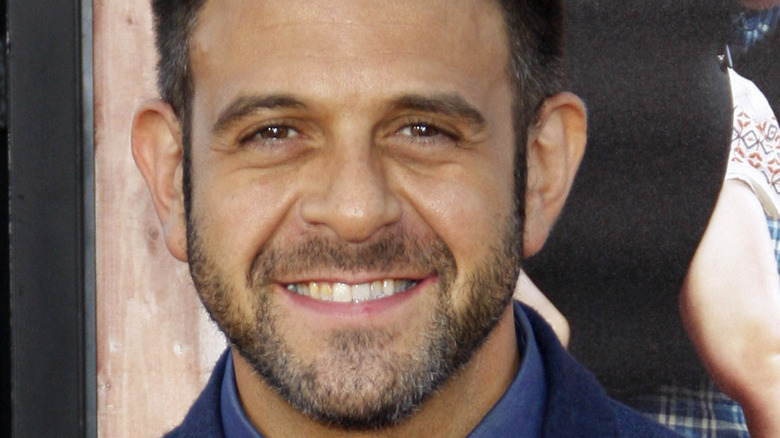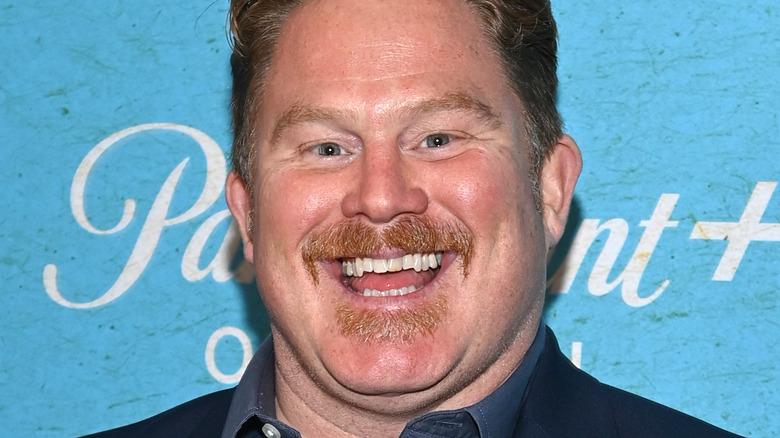Casey Webb Speaks Out About His Man V. Food Experience
On the surface, "Man v. Food" seems like a food lover's dream come true. Starting with Adam Richman at the helm, the show gained popularity by pitting its host against some wild food challenges like a sequence of spicy wings that gradually increase in heat or burgers the size of which you have to see to believe.
Richman was not shy in sharing protocol behind the scenes during his time on the show, like how he prepared by not eating for a full day before a challenge and the need for doctors to clear his health to gauge his ability to participate in them. But on the flip side, he was also pretty candid about which challenges he favored and the things he did enjoy about the show. Overall, it was a nice experience for him.
After Richman left the show, it was adopted by Casey Webb, who considers himself an underdog as he was not involved in the food world beforehand. But despite his semi-imposter syndrome, he's been doing a great job leading the show on its continued journey, having served for at least five seasons so far, according to Distractify. And now Webb is ready to speak about his perspective and experiences on "Man V. Food," including the good and the bad.
Webb nearly quit after one season
In a podcast interview for "Food Network Obsessed," Casey Webb opened up about what happened behind the scenes and some of the things he enjoyed most about facing food challenges. One thing he commiserates with Richman about is how taxing these challenges can be, so much so that he almost quit after his first season. Webb refers to the challenges as "a sport" and comments on how much "you really have to get yourself psyched up" in order to be able to complete them. But on the bright side, learning that "we have the potential of increasing the business of these restaurants by 40%" helped maintain his will to continue.
Webb also mentions, several times, that the challenges are very real and the wins and losses are not faked for the camera. In fact, the only change they make to the dining spots' protocol is asking chefs to use real ingredients rather than extracts they might otherwise include in recipes. "It's as real as it gets," says the host. And if his time on the show has taught him one thing, it's "how to respect food." While it does have its risks and downsides, it seems the rewards of the show are great enough to make it all worth it.

